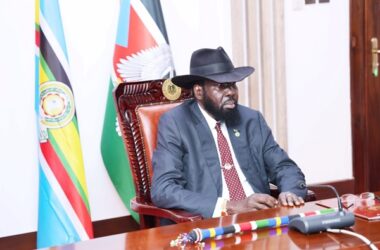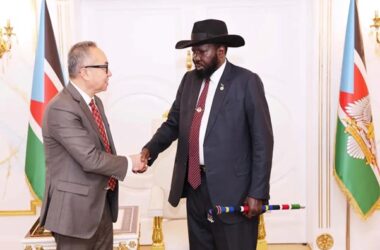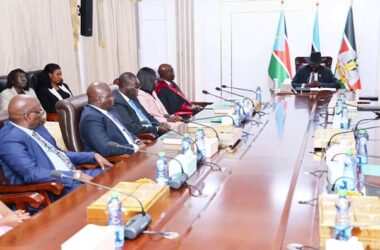By Kei Emmanuel Duku and Jacob Onuha Nelson
A technical dispute sparked off between Central Equatoria state and South Sudan Revenue Authority (SSRA), this week, over tax collection, in Juba city.
The wrangles, first surfaced mildly in May when the state Revenue Authority directed non-governmental organizations and companies within its territory to pay taxes.
Meanwhile, National Revenue Authority swiftly condemned the move. The national tax collector asserted that it has the sole mandate to collect public revenue.
In response, the state government cited Article 179 of the Transitional Constitution, as ground to collect specific revenues, including that of vehicle registration and licenses.
Although the May disputes appeared to have been resolved, a fresh controversy erupted this month with the SSRA’s declaration of a new zoning and door-to-door registration initiative across Juba City.
According to a statement issued by SSRA Commissioner General, Simon Akuei Deng, the initiative aimed to boost tax collection by dividing Juba City into ten operational zones. SSRA officials would conduct free, door-to-door taxpayer registration for all business service providers and self-employed individuals.
Central Equatoria State, as the host of the capital, Juba, rejected the zoning initiative.
During the State Council of Ministers meeting, chaired by Governor Rabi Mujung Emmanuel on Thursday, the cabinet resolved that the planned zoning violated the constitutional mandate of the state government.
The Acting Minister of Information and Communication, Hon. Jacob Aligo Lo-Lado, subsequently told the press the Cabinet rejected the “unilateral decision” of SSRA and requested its revocation.
Aligo cited Article 49 of the Transitional Constitution of South Sudan (2011), as amended, which calls for respect of intergovernmental linkages.
The state cabinet called for prior consultations inclusive of Juba City Council before implementation of such a policy.
However, to ease the tax row, SSRA Commissioner General, Simon Akuei Deng decided to issue temporary suspension of implementation of the Zoning initiative. He emphasized that the postponement was in line with SSRA’s commitment to transparency, accountability, and inclusiveness.
“SSRA recognizes the importance of meaningful engagement with all relevant actors in the country’s tax ecosystem,” his statement read.
According to SSRA, the suspension is designed to facilitate broader consultations with key groups, including business leaders, local government officials, civil society organizations, and development partners.
This collaborative approach aims to ensure the exercise is thoroughly understood, widely supported, and closely aligned with national priorities and the expectations of taxpayers.
The taxpayer registration and zoning exercise was initially launched with vital objectives of establishing an updated and reliable taxpayer register, expand the national tax base to boost domestic revenue mobilization, and enhance fair and efficient service delivery.
The SSRA maintains that it underscores that proper consultation and collective ownership are equally critical for the success of such significant reforms.
The national tax collector also reiterated its assurance to the public that taxpayer registration remains entirely free of charge at all its centres. The authority explicitly stated that “No individual is authorized to collect any fees during this process,” and pledged that all future engagements will be conducted with full transparency and in collaboration with all key stakeholders.
Addressing the long-standing challenge of double taxation, the SSRA expressed its anticipation for the national legislature to enact a comprehensive Tax Procedure Act. This new legislation is expected to clearly and extensively define the various taxes collected by the three levels of government: National, State, and Local, thereby bringing much-needed clarity and fairness to the tax system.
The SSRA extended its gratitude to all citizens and business operators who had already begun cooperating with the exercise, urging them to remain prepared for participation once the process officially resumes. The date for resumption will be announced following the forthcoming consultations.
The South Sudan Revenue Authority, established through the South Sudan Revenue Authority Act, 2016 (Amended 2023), reaffirmed its unwavering commitment to building a modern, fair, and efficient tax administration dedicated to serving all Sudanese with integrity and professionalism.




